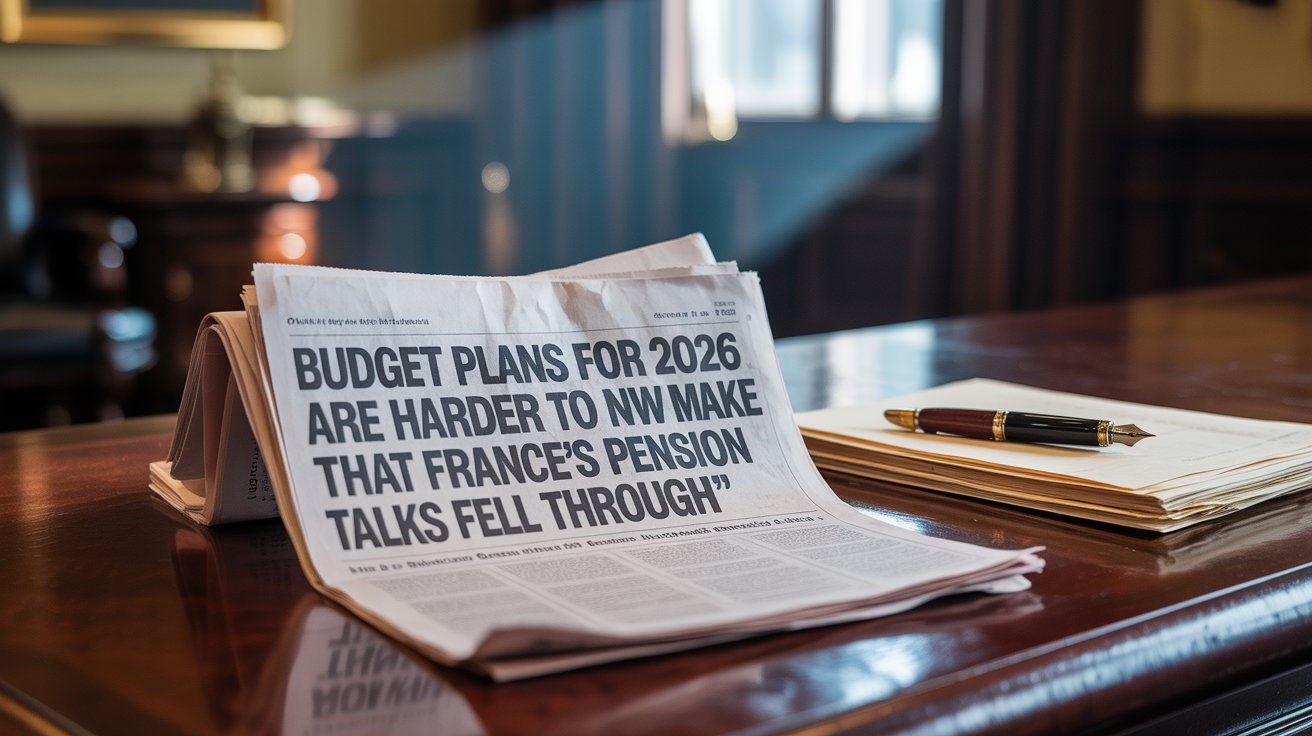The long-awaited talks about pension reform fell through, which was bad news for France’s fiscal strategy. This dashed hopes for a “année blanche,” or a year-long freeze on social spending increases. The government was hoping for a deal that would have included partially deindexing pensions, which would have meant that their growth would be less than inflation. This would have made it easier to cut costs across all social benefits in the 2026 budget. If this deal doesn’t go through, Prime Minister François Bayrou will have a harder time getting ready to announce his plan for economic recovery in mid-July 2025.
A Chance Missed
People thought the pension conclave, which was supposed to bring unions and employers together to fix the pension system, was a great chance. If the deal had gone through, it would have made sense to stop making changes to pensions and apply the same rules to other social benefits, saving the government billions of dollars. Instead, the talks broke down, leaving the government politically weak and economically limited. Bayrou is still hopeful, even though things didn’t go as planned. On June 25, 2025, he told senators who were not sure that the talks had not failed. He said, “I hope we’ll show progress soon, maybe in a few hours.” He promised that on Thursday, the government would make announcements about the progress of negotiations and what they would do next.
Proposed Pension Reform Plan (Unratified)
| Measure | Timeline | Expected Savings |
|---|---|---|
| Pension increases cut by 0.8 pts below inflation | 2026 | €2 billion |
| Cuts by 0.4 pts annually | 2027–2030 | €6 billion (by 2030) |
Even though unions and employers couldn’t agree on the details, the idea of partial deindexation gained some support. Cyril Chabanier, president of the CFTC union, had said he was open to limiting changes for the top 50% of retirees by income. This was a rare point of possible compromise.
The “Année Blanche” Plan is Still Going Strong
The government is still looking at a “année blanche” to cut spending, even though it hasn’t worked so far. Sophie Primas, a government spokesperson, said on France Info on June 25 that the idea is still on the table. This plan would freeze or partially deindex a number of social benefits, such as pensions, family allowances, housing aid, and income support. It could also stop tax bracket changes and other fiscal transfers. France spends half of its public money on social programs, so this move could help the Finance Ministry save a lot of the €40 billion it needs by 2026.
Potential Savings from “Année Blanche” Plan
| Scope of Freeze | Estimated Revenue (2026) |
|---|---|
| Full freeze on benefit increases | Up to €25 billion |
| Partial deindexation (e.g., 50% of inflation) | €15–20 billion |
| Total Budget Shortfall to Cover | €40 billion |
Depending on how big it is, a “année blanche” could bring in €15 to €25 billion. There are a lot of choices, from completely freezing benefit increases to partially deindexing them, like linking changes to half of inflation for a few years. The government is being careful because each option has its own political and economic costs and benefits. A cabinet member joked, “There are 50 shades of an année blanche,” adding that some areas, like defense and security, would probably be safe.
Support from the Senate and the Realities of Politics
The government is counting on the Senate to help its case. Senate President Gérard Larcher has said that the freeze is a “serious option” and that a “smart” approach that protects important areas is needed. He told AFP on June 25 that “everything’s on the table,” which showed that he was willing to make tough decisions. The Senate is likely to send in proposals soon, which Primas said the government would look over carefully.
But the broken National Assembly is a problem. A well-known senator said, “With such a divided parliament, structural reforms are almost impossible.” Because of this political deadlock, a blanket freeze sounds better because it doesn’t require difficult, targeted cuts. Critics say, though, that it’s a lazy way to avoid the hard work of deciding how to spend money.
Pushback and Worries in the Area
There is already a lot of resistance. Last week, André Laignel, head of the Local Finance Committee, said that freezing local government budgets could lead to a backlash in parliament. Local leaders are worried that new financial restrictions will make it harder for them to provide services, which will make things even more tense between Paris and regional authorities.
A Delicate Balancing Act for Bayrou
The failed pension talks have made things more difficult for Bayrou as he works on his July budget outline. The government now has to find a delicate balance: making huge savings without upsetting important people or causing widespread unrest. It’s not clear if a “année blanche” can close the gap, but France’s finances are in trouble, so they have to do something big.

